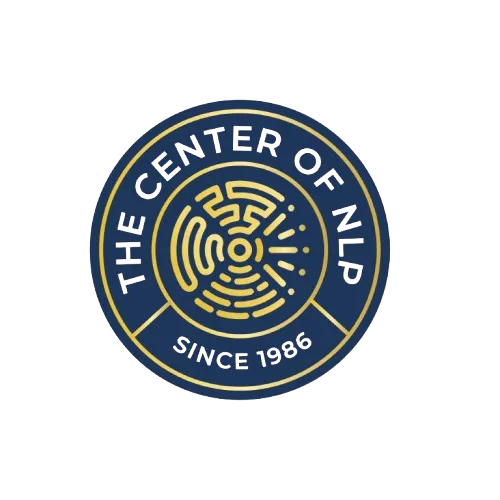
Enhancing Emotional Intelligence through Neuro-Linguistic Programming
1. Introduction
Emotional intelligence plays a vital role in our personal and professional lives. It helps us understand and manage our emotions effectively, communicate empathetically, and build strong relationships. Neuro-Linguistic Programming (NLP) offers powerful techniques to enhance emotional intelligence and unlock our full potential. In this article, we will explore the connection between NLP and emotional intelligence, along with practical NLP techniques that can be used to improve emotional intelligence.
2. Understanding Emotional Intelligence
Emotional intelligence refers to the ability to recognize, understand, and manage our emotions and the emotions of others. It encompasses self-awareness, self-regulation, empathy, and effective interpersonal skills. People with high emotional intelligence can navigate social situations, handle stress, and maintain healthy relationships.
3. What is Neuro-Linguistic Programming (NLP)?
Neuro-Linguistic Programming, commonly known as NLP, is a set of techniques and strategies focusing on the connection between our neurological processes, language, and behavioral patterns. NLP helps individuals understand how their thoughts, language, and behaviors influence their experiences and empowers them to make positive life changes.
4. The Connection between NLP and Emotional Intelligence
NLP and emotional intelligence are interconnected. NLP techniques provide a framework for enhancing emotional intelligence by helping individuals develop self-awareness, manage their emotions, and communicate effectively. By understanding the patterns and structures of our thoughts, emotions, and behaviors, we can gain insights into our emotional intelligence and make targeted improvements.
Connect with a skilled Neuro-Linguistic Programming Coach to transform your communication skills.5. NLP Techniques to Enhance Emotional Intelligence
5.1 Anchoring
Anchoring is an NLP technique that helps create associations between specific emotions and external triggers. Individuals can access those emotions when needed by consciously anchoring positive emotions to specific gestures, sounds, or words. Anchoring can enhance emotional intelligence by quickly shifting from negative emotions to positive ones.
5.2 Reframing
Reframing involves changing how we perceive a situation by shifting our focus and interpretation. Through NLP techniques, individuals can reframe negative experiences or limiting beliefs into empowering ones. Reframing helps improve emotional intelligence by allowing us to view challenges from different perspectives and respond more effectively.
5.3 Visualizations
Visualizations are powerful tools used in NLP to enhance emotional intelligence. By vividly imagining positive outcomes and experiences, individuals can create new neural pathways that support emotional well-being. Visualizations can strengthen positive emotions, increase self-confidence, and improve emotional intelligence.
5.4 Sensory Acuity
Sensory acuity refers to the ability to observe and interpret non-verbal cues, such as facial expressions, body language, and tone of voice. NLP techniques can enhance sensory acuity, enabling individuals to understand others' emotions better and respond empathetically. Developing sensory acuity contributes to improved emotional intelligence.
5.5 Meta-Modeling
Meta-modeling in NLP involves questioning and challenging the assumptions, generalizations, and distortions in our language and thinking. By applying meta-modeling techniques, individuals can gain clarity, challenge limiting beliefs, and develop more accurate and resourceful thought patterns. Meta-modeling enhances emotional intelligence by promoting self-reflection and cognitive flexibility.
6. Benefits of Enhancing Emotional Intelligence through NLP
Enhancing emotional intelligence through NLP offers numerous benefits. It enables individuals to develop self-awareness, handle emotions effectively, build stronger relationships, and improve communication skills. By utilizing NLP techniques, individuals can experience personal growth, increased resilience, and overall emotional well-being.
7. How to Get Started with NLP for Emotional Intelligence
To get started with NLP for enhancing emotional intelligence, consider the following steps:
Educate yourself: Learn about the principles and techniques of NLP through books, online resources, or training programs.
Set goals: Identify areas of emotional intelligence you wish to enhance and set achievable goals.
Practice self-awareness: Pay attention to your thoughts, emotions, and behaviors. Observe patterns and triggers.
Choose appropriate NLP techniques: Select NLP techniques that align with your goals and practice them consistently.
Seek professional guidance: Consider working with a certified NLP practitioner who can provide personalized advice and support.
8. Overcoming Challenges in Developing Emotional Intelligence
Developing emotional intelligence through NLP may come with challenges. It requires self-reflection, consistency, and a willingness to leave your comfort zone. Some common challenges include resistance to change, fear of vulnerability, and old thinking patterns. Overcoming these challenges involves patience, persistence, and seeking support when needed.
9. Conclusion
Enhancing emotional intelligence through Neuro-Linguistic Programming offers valuable tools and techniques to understand and manage emotions effectively. By integrating NLP into personal and professional development, individuals can cultivate higher emotional intelligence, improve relationships, and increase well-being and overall success.
Learn more here: Centerofnlp.com
For inquiries and further information, kindly reach out via email to [email protected]
Check Out For more:
The Role of NLP in Improving Public Speaking and Presentation Skills
How NLP Can Help You Develop Your Presentation and Public Speaking Skills
Using NLP to Transform Negative Thought Patterns into Positive Ones
Unleashing Your Creativity with Neuro-Linguistic Programming Strategies
FAQs
FAQ 1: Can NLP help improve emotional intelligence in relationships?
Yes, NLP techniques can be highly effective in improving emotional intelligence in relationships. They provide tools for better communication, empathy, and understanding of emotions, essential for healthy and fulfilling relationships.
FAQ 2: How long does it take to see results when using NLP techniques for emotional intelligence?
The timeline for seeing results with NLP techniques may vary for each individual. It depends on factors such as the complexity of the emotional challenges and the consistency of practice. Regular practice can yield noticeable improvements within a few weeks or months.
FAQ 3: Are there any risks or side effects associated with NLP?
NLP techniques are generally safe and do not have any significant risks or side effects. However, practicing NLP responsibly and seeking guidance from certified practitioners to ensure proper understanding and application of the techniques is essential.
FAQ 4: Can NLP be self-taught, or is professional training necessary?
While basic NLP techniques can be learned through self-study, professionally trained NLP Masters provide a safe and ethical experience. Working with a certified NLP practitioner or attending workshops will enhance your learning and skill development.
FAQ 5: Can NLP techniques be used to overcome specific emotional challenges?
Yes, NLP techniques can be tailored to address specific emotional challenges effectively. By understanding the underlying patterns and beliefs associated with the challenge, NLP offers strategies for reframing, anchoring, and developing new perspectives to overcome emotional obstacles.
Learn more here: Centerofnlp.com
Or send email to: [email protected]

